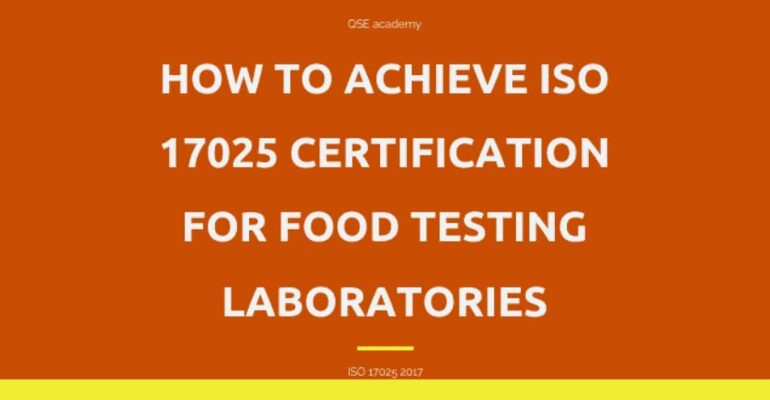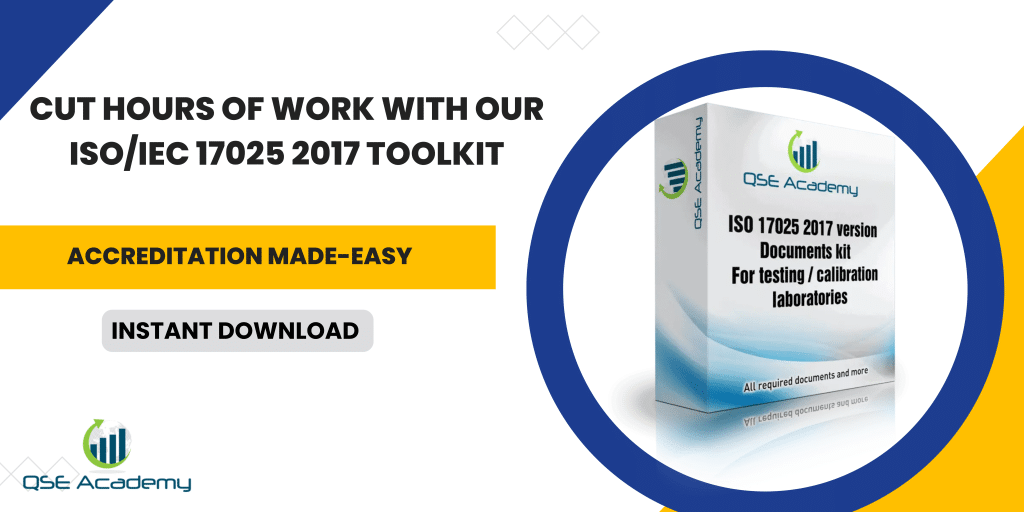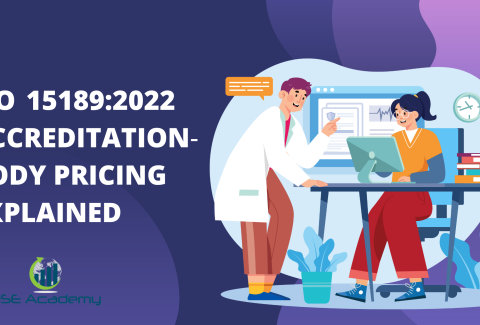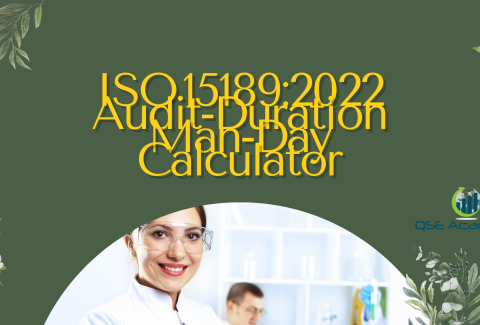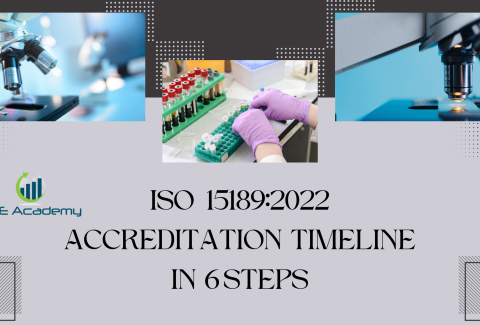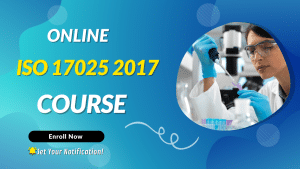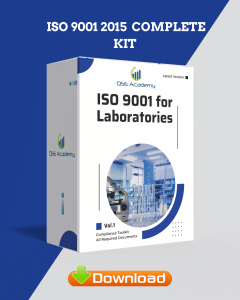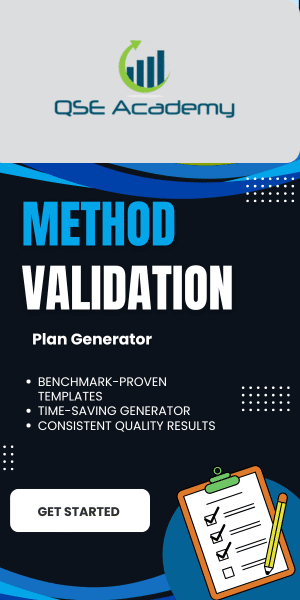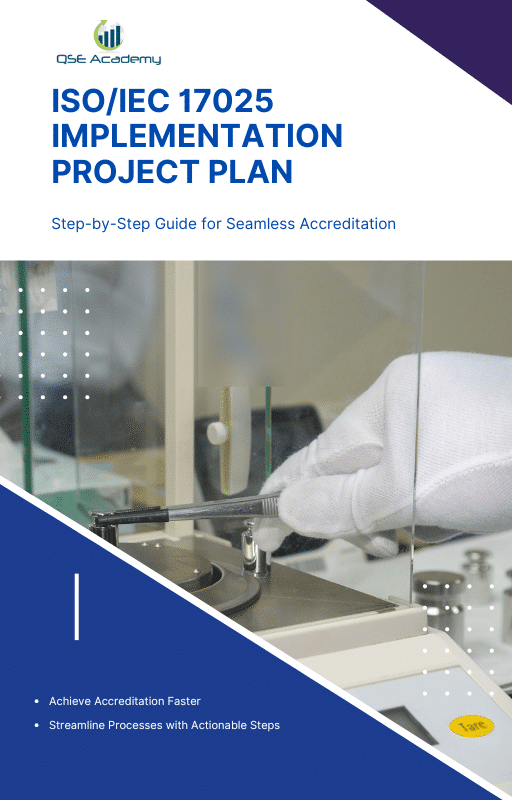ISO/IEC 17025 Accreditation For Food testing Laboratories
Last Updated on October 13, 2025 by Hafsa J.
Accreditation For Food Testing Laboratories
If you work in a food testing lab, you’ve probably heard the term Accreditation For Food Testing Laboratories more than once—and for good reason. Accreditation isn’t just a certificate you hang on the wall. It’s a formal recognition that your lab consistently produces reliable, accurate, and trustworthy results, especially when public health and food safety are on the line.
ISO/IEC 17025 is the global standard used for laboratory accreditation, and it applies directly to food testing labs performing chemical, microbiological, or physical analyses. Whether you’re testing for allergens, contaminants, nutritional content, or shelf life, meeting this standard shows that your lab has the competence and quality system to back up every result.
So, why is Accreditation For Food Testing Laboratories such a big deal? Because it proves your lab:
-
Follows internationally accepted testing methods
-
Uses properly calibrated equipment
-
Has trained, competent staff
-
Maintains traceable and accurate records
-
Operates under a quality management system that’s always improving
In this article, we’re going to break down exactly what Accreditation For Food Testing Laboratories involves, how ISO/IEC 17025 fits in, what auditors look for, and how your lab can prepare, apply, and maintain its accredited status. No jargon. No guesswork. Just straightforward guidance for food labs ready to level up their quality and credibility. Let’s dive in.
Understanding ISO/IEC 17025 in the Food Testing Context
When it comes to Accreditation For Food Testing Laboratories, ISO/IEC 17025 is the gold standard. It’s not just about having a few good test methods or clean lab benches—it’s about proving that your lab operates competently, consistently, and in line with internationally accepted practices.
But what does that actually look like for a food testing lab?
ISO/IEC 17025 applies to all types of testing and calibration laboratories, but in the food industry, it becomes especially critical. You’re not just measuring numbers—you’re often determining whether a product is safe to eat, meets legal limits, or can be trusted by consumers. That’s where Accreditation For Food Testing Laboratories comes in. It shows that your lab’s results can be trusted by regulatory agencies, suppliers, and customers alike.
Food testing labs often deal with:
-
Microbiological testing (like checking for Salmonella or Listeria)
-
Chemical analysis (such as detecting pesticide residues or nutritional components)
-
Physical tests (like measuring moisture content or packaging integrity)
To earn Accreditation For Food Testing Laboratories, you must show that you’re applying ISO/IEC 17025 in a way that fits your lab’s specific services. That includes having the right technical procedures, qualified personnel, accurate equipment, and a working quality management system.
The standard also requires a strong focus on impartiality and traceability—two things that are especially important when you’re testing food that could affect public health. Whether you’re testing raw materials, finished products, or environmental swabs, the same principles apply.
In short, ISO/IEC 17025 provides the framework, and Accreditation For Food Testing Laboratories is the recognition that you’re doing things the right way. If your lab is serious about food safety, regulatory compliance, and earning trust, this is the path to follow—and it’s one worth understanding in detail.
Technical Requirements for Accreditation For Food Testing Laboratories
When we talk about Accreditation For Food Testing Laboratories, one of the biggest areas of focus is the technical side of things. This is where your lab proves it doesn’t just talk the talk—it walks the walk. ISO/IEC 17025 asks you to demonstrate that your methods, equipment, and staff are all up to standard and capable of producing valid, trustworthy results.
Let’s break down what that really means in a food testing lab.
Competence of Staff and Method Validation
First up: people. For Accreditation For Food Testing Laboratories, it’s not enough to just have lab technicians—you need trained, competent staff who understand the methods they’re using and why they matter.
That means:
-
Staff must have proper education and hands-on experience
-
Training records need to be maintained and kept up to date
-
Their skills must be regularly evaluated to confirm ongoing competence
In addition to that, every testing method—whether it’s a standard method or something your lab developed—has to be validated. Auditors will look for proof that your methods work as intended, especially when it comes to things like detecting allergens, verifying nutritional values, or testing for contaminants.
Equipment Calibration and Environmental Control
Next, let’s talk about equipment. In food testing labs, you’re using everything from balances and incubators to gas chromatographs and PCR machines. For Accreditation For Food Testing Laboratories, all of this equipment must be properly calibrated and maintained.
That includes:
-
Keeping up-to-date calibration certificates with traceability to recognized standards
-
Monitoring and controlling environmental conditions like temperature and humidity
-
Performing regular checks and documenting maintenance activities
Even small things like pipettes and thermometers need attention. If the tools aren’t accurate, your results won’t be either—and that’s a big deal when it comes to food safety.
Sample Handling and Chain of Custody
Another technical area that plays a huge role in Accreditation For Food Testing Laboratories is how you handle your samples. From the moment a sample arrives to the moment results are reported, it should be clear, traceable, and properly stored.
Key elements include:
-
Clear labeling and identification of all samples
-
Secure, temperature-appropriate storage
-
Documented chain of custody for each step of the process
Why does this matter? Because sample integrity directly affects the reliability of your results. If a sample gets mixed up or stored incorrectly, your data could be invalid—something no accredited lab can afford.
In short, the technical requirements behind Accreditation For Food Testing Laboratories are about creating a system where every detail—from staff knowledge to equipment performance—is controlled, consistent, and documented. It’s the foundation of producing results that clients and regulators can trust.
Management System Implementation for Food Labs
Now let’s talk about something that might not seem as exciting as equipment or testing—but it’s just as important: your management system. When it comes to Accreditation For Food Testing Laboratories, having a solid management system in place isn’t optional—it’s essential. It’s what keeps everything running smoothly and ensures that your lab is consistent, traceable, and always improving.
So what does ISO/IEC 17025 expect when it comes to management systems in a food testing environment?
Document Control and Recordkeeping
Every accredited food lab needs a reliable system for managing documents and records. That includes procedures, test methods, calibration records, training logs—you name it.
Here’s what auditors typically look for during assessments for Accreditation For Food Testing Laboratories:
-
Procedures that are current, clearly written, and approved by the right people
-
Records that are complete, legible, and traceable to specific activities
-
A system to make sure outdated documents don’t accidentally get used
In a busy food lab, it’s easy for paperwork to pile up or for a spreadsheet to go unchecked. But with accreditation, your system has to prove that all the information is under control, accessible when needed, and updated regularly.
Internal Audits and Management Reviews in Practice
Internal audits are a big part of ISO/IEC 17025—and they’re a key requirement for Accreditation For Food Testing Laboratories. These aren’t just quick checklists. They should be thorough reviews of how your lab is performing across the board.
Your internal audit program should:
-
Cover all areas of the standard, not just technical testing
-
Identify nonconformities and opportunities for improvement
-
Lead to corrective actions that actually get implemented
Management reviews are equally important. They’re where your leadership team steps back and looks at the big picture: Are the systems working? Are there recurring issues? Is the lab meeting customer needs?
Auditors want to see that your lab doesn’t just fix problems as they pop up—but takes time to reflect, learn, and improve. That’s the real spirit behind Accreditation For Food Testing Laboratories. It’s not just about passing an audit—it’s about building a lab that keeps getting better, every single year.
So yes, your management system might live behind the scenes, but it plays a leading role in your lab’s success. When it’s well-structured and actually used (not just written down), it becomes the backbone of your accreditation journey.
Common Nonconformities in Food Testing Laboratory Assessments
Let’s be honest—no one likes hearing the word “nonconformity.” But if your lab is aiming for Accreditation For Food Testing Laboratories, it’s helpful to know what commonly goes wrong so you can avoid the same pitfalls. Nonconformities aren’t the end of the world—they’re simply gaps between what your lab is doing and what ISO/IEC 17025 expects. And the good news? Most of them are fixable.
Over the years, certain issues come up again and again during assessments. Here’s what to watch for.
Method Validation Gaps and Incomplete SOPs
One of the most frequent issues that pops up in Accreditation For Food Testing Laboratories is weak or missing method validation. Maybe your team is using a method that works well in practice—but if it hasn’t been validated and documented properly, auditors will flag it.
Common problems include:
-
No validation records for lab-developed or modified methods
-
SOPs that are vague, outdated, or missing critical steps
-
Staff using methods inconsistently due to unclear instructions
To stay on the safe side, every method—whether from an official source or created in-house—needs to be validated under your lab’s specific conditions. And your SOPs should be written so clearly that anyone on the team can follow them with confidence.
Inadequate Traceability and Uncontrolled Records
Another major area where labs stumble is with traceability and documentation. For Accreditation For Food Testing Laboratories, traceability isn’t just a nice-to-have—it’s essential for building trust in your results.
Watch out for:
-
Missing calibration certificates for key equipment
-
No clear link between samples, test results, and reports
-
Records stored in a way that’s disorganized or difficult to retrieve
Think of traceability like a breadcrumb trail. From sample receipt to final report, you should be able to follow every step—and prove it with records. If an auditor asks for evidence, your team should know exactly where to find it, fast.
Inconsistent Handling of Nonconformities and Corrections
Finally, another area that can delay Accreditation For Food Testing Laboratories is how your lab handles its own internal problems. If something goes wrong—say a test was done with expired reagents or a record was entered incorrectly—you need to show how the issue was caught, corrected, and prevented from happening again.
Auditors often see:
-
Vague or incomplete corrective action reports
-
Lack of root cause analysis
-
Issues being marked “resolved” without any follow-up
Remember, mistakes happen. What matters is how your lab responds and improves. A strong corrective action process shows that your lab doesn’t just aim for compliance—it owns its process and keeps getting better.
By staying aware of these common nonconformities, your lab can take proactive steps to tighten up procedures and avoid surprises during the assessment. And that’s a big part of earning—and keeping—Accreditation For Food Testing Laboratories.
Preparing for the ISO/IEC 17025 Accreditation Audit
So, your lab is ready to take the final step—going through the audit process for Accreditation For Food Testing Laboratories. It might sound a little nerve-wracking, but with the right preparation, it doesn’t have to be. Think of it like showing someone around your kitchen after spending weeks perfecting your recipe—you already know what you’re doing; now it’s time to demonstrate it.
Here’s how you can prepare for audit day with confidence and clarity.
Pre-Audit Checklist for Food Labs
Before the audit, it’s helpful to go through a checklist tailored specifically to Accreditation For Food Testing Laboratories. This will make sure no critical detail gets overlooked.
Some key things to confirm:
-
All standard operating procedures (SOPs) are up to date and reflect current practice
-
Staff training records are complete and show recent evaluations
-
Equipment calibration certificates are current and traceable
-
Method validations are documented and accessible
-
Internal audits and management reviews have been completed and recorded
Taking time to do a thorough internal check before the official audit helps your team catch and fix any last-minute gaps. It also boosts everyone’s confidence going into the assessment.
What Auditors Will Focus on in Food-Specific Testing
Auditors conducting assessments for Accreditation For Food Testing Laboratories know the food industry well, so they’ll be looking for the details that matter most in your area of testing.
Here are a few things they may pay close attention to:
-
Microbiological testing controls: How well does your lab manage contamination risk? Are your incubation times and temperatures consistent?
-
Chemical analysis precision: Are your measurements traceable and accurate, especially when detecting residues or allergens?
-
Sample handling: Is there clear documentation showing the sample’s journey—from receipt to disposal?
-
Report accuracy: Are your results clearly presented, with the right decision rules and disclaimers in place?
It’s also common for auditors to speak directly with your staff. They’ll ask about how methods are performed, where records are stored, and what happens when something goes wrong. These aren’t trick questions—they’re just verifying that your system works in real life, not just on paper.
Preparing for Accreditation For Food Testing Laboratories is really about making sure your lab’s processes are working the way they should—day in and day out. If you’ve built a solid system and your team understands it, the audit becomes a formality, not a fear. Just be honest, be prepared, and be ready to show your best work.
Maintaining Compliance Post-Accreditation
Getting accredited is a big achievement—but keeping that accreditation? That’s where the real work begins. After all the effort your lab put into earning Accreditation For Food Testing Laboratories, it’s important to make sure you stay compliant and audit-ready all year round—not just when it’s time for the next assessment.
Think of it like staying in shape after training for a big race. You’ve built good habits, systems, and skills. Now it’s just about maintaining them.
Surveillance Audits and Ongoing Monitoring
Once your lab receives Accreditation For Food Testing Laboratories, the accreditation body doesn’t disappear. They’ll be checking in periodically through surveillance audits—usually every year or two. These audits aren’t full reassessments, but they still go deep enough to verify that your lab continues to meet the standard.
Here’s how to stay ready:
-
Keep your internal audit and management review schedule on track
-
Regularly check calibration and maintenance logs
-
Review and update procedures as needed (especially when methods or regulations change)
-
Keep records organized and easy to retrieve
It’s all about consistency. If you treat your lab’s quality system as a living, breathing part of your daily operations—not just something for audit season—you’ll be in great shape.
Continuous Improvement in Testing Processes
One of the most important parts of Accreditation For Food Testing Laboratories is the idea of continual improvement. ISO/IEC 17025 doesn’t just ask you to comply—it encourages you to evolve. That means looking for ways to make your processes better, more efficient, and more accurate over time.
You don’t have to overhaul everything overnight. Start small:
-
Revisit how your team handles sample intake—could it be smoother?
-
Look for patterns in nonconformities—are certain issues popping up repeatedly?
-
Ask your staff for feedback—what’s working well, and what’s getting in their way?
By building improvement into your routine, you’re not only staying compliant—you’re making your lab stronger and more resilient. And that’s exactly what Accreditation For Food Testing Laboratories is all about: creating systems that support quality, reliability, and growth in the long run.
Staying accredited doesn’t mean walking on eggshells. It just means keeping your quality mindset alive and active. And once that becomes second nature, maintaining your accreditation feels less like pressure—and more like pride.
Final Thoughts on Accreditation For Food Testing Laboratories
So, if you’ve been wondering whether Accreditation For Food Testing Laboratories is worth the effort—the answer is a confident yes. It’s not just about earning a certificate or checking off a regulatory box. It’s about building a lab that consistently delivers reliable, accurate, and trustworthy results that stand up to scrutiny.
Throughout this article, we’ve talked about what Accreditation For Food Testing Laboratories really involves. From technical requirements like method validation and equipment calibration, to management systems, internal audits, and document control—every piece works together to create a lab that operates with integrity and confidence.
We’ve also covered:
-
How to prepare for the ISO/IEC 17025 audit
-
What common nonconformities to look out for
-
How to keep your lab compliant after accreditation
-
Why ongoing improvement matters just as much as meeting the standard
The bottom line? Accreditation isn’t a one-time goal—it’s a commitment to doing things right, every single day. And while the process can seem complex at first, it becomes much more manageable when you break it down into clear steps and take it one piece at a time.
If your lab is on the path toward Accreditation For Food Testing Laboratories, take pride in the fact that you’re investing in quality, safety, and transparency. That’s something your customers, partners, and regulators will all recognize and respect.
And if you ever feel overwhelmed by the details, just come back to this one idea: accreditation isn’t about being perfect—it’s about being prepared, consistent, and committed to excellence. You’ve got this.
I hold a Master’s degree in Quality Management, and I’ve built my career specializing in the ISO/IEC 17000 series standards, including ISO/IEC 17025, ISO 15189, ISO/IEC 17020, and ISO/IEC 17065. My background includes hands-on experience in accreditation preparation, documentation development, and internal auditing for laboratories and certification bodies. I’ve worked closely with teams in testing, calibration, inspection, and medical laboratories, helping them achieve and maintain compliance with international accreditation requirements. I’ve also received professional training in internal audits for ISO/IEC 17025 and ISO 15189, with practical involvement in managing nonconformities, improving quality systems, and aligning operations with standard requirements. At QSE Academy, I contribute technical content that turns complex accreditation standards into practical, step-by-step guidance for labs and assessors around the world. I’m passionate about supporting quality-driven organizations and making the path to accreditation clear, structured, and achievable.

